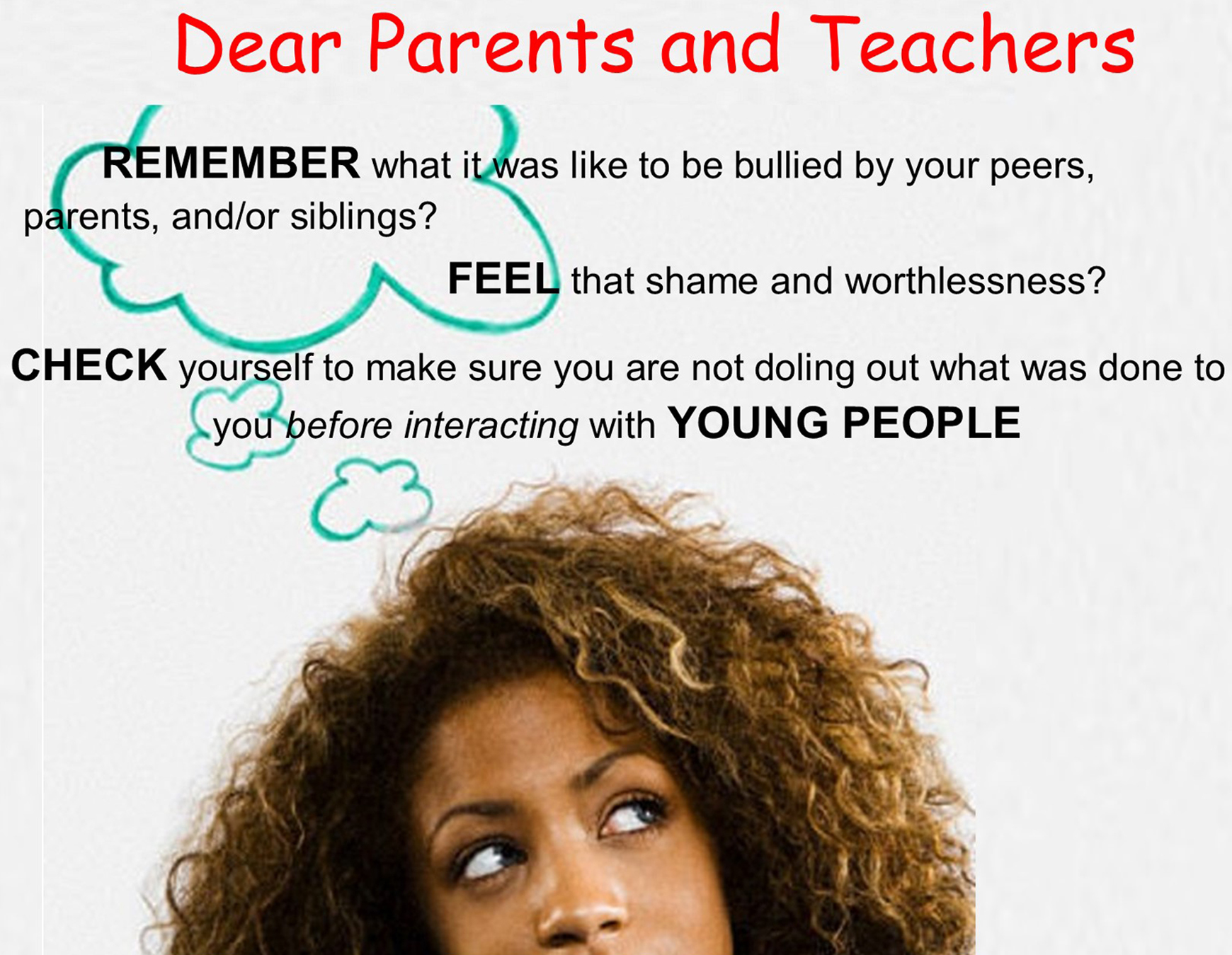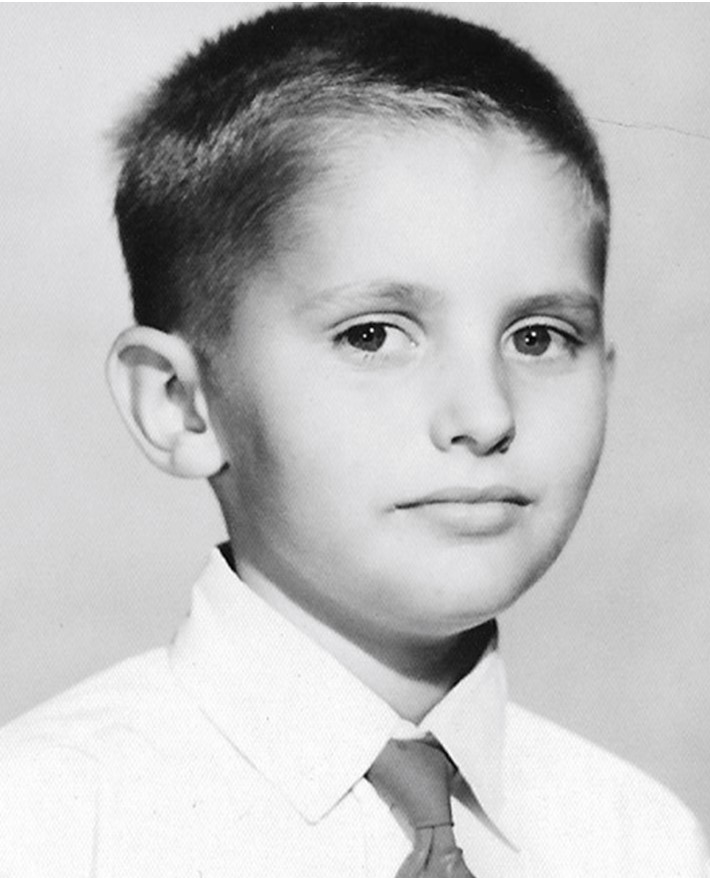Welcome parents and teachers. Hey U.G.L.Y. developed this page as a response to requests from students, parents and teachers who asked help for themselves and others. On this page you will find resources, articles, videos and real stories about parents and teachers who have had positive effects on the human beings who were in their care. You will also read stories from others who have suffered long-term negative effects. Since Hey U.G.L.Y. is all about taking negatives and turning them into positives, we are hoping you will embrace the positive stories and learn from the negative ones. We also hope you will share the various stories with those you think could benefit.
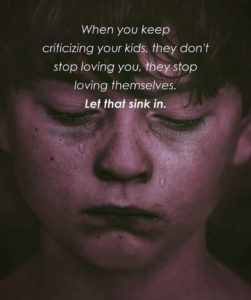
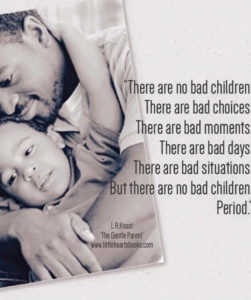
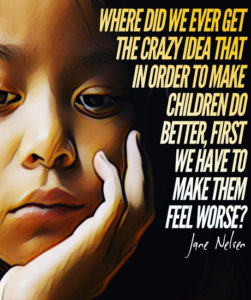

Gerald Marcyk
Danielle Faczan
Bruce Springsteen
NUN’S BULLYING GUILTS
BOY FOR LIFE
by Gerald Marcyk
Former INTEL Executive’s Story
I started at St Jude the Apostle elementary school in 5th grade. St Jude was the closest Catholic school to our house, but it was located two towns away from our small isolated suburb on the far south side of Chicago. [expand title= “…READ MORE“]
The school was run by the Sisters of Notre Dame augmented by a few female lay teachers. In the mid-60s, they wore the most distinctive and unusual habits that I have ever seen in my life. There is nothing more intimidating to a young child than an other-worldly looking woman dressed in black with what appear to be horns growing out of her head and chin. This habit must have been difficult to put on and irritating to wear. And I think that this irritation surely came through in the way that they dealt with the children.
The nuns were no-nonsense women and they used both their physical appearance and the fear of God to control the students. “Mr Paganini, quit leaning on that wall. You’re not a hoodlum…..yet.’ “Mr Marcyk, I hope you’re not as much trouble as your brother. I’ve got my eye on you.” “Miss LeBeau. If you keep mooning at those boys like that, you’re going to end up pregnant.”
But the most feared of all was Mother Superior. She was a tiny five foot tall older woman who acted as the principal of the school and the supervisor of the other nuns. Her distinguishing feature was that her eyes seemed to bug out of her head whenever she became agitated. It was every student’s nightmare to have your name called out on the school PA. “Mr Pratscher, please report to Mother Superior’s office….immediately” This never ended well.
One time while I was in 7th grade Mother Superior appeared at my class table and pointed to me. “Mr Marcyk, I need to talk with you.” I slowly and nervously stood up not knowing what prompted this summons.
She put me aside into main aisle which divided the room. “Mr Marcyk. I’ve seen your grades. They are not acceptable. God has given you the talents of intelligence and concentration and you are wasting them. I don’t want to see you ending up as a butcher in some grocery store.” Then she leaned her face directly into mine. And her eyes bulged. “I am disappointed in you. And I know that God is disappointed in you as well.”
I carried this guilt trip given to me by a little nun for the rest of my life: God is disappointed in me. Added to that guilt was the strain bullying took on me. My birthday is in September and my parents were encouraged to keep me in classroom filled with more mature students because I was smart. All of my life, I was the youngest and smallest boy in my grade and picked on by students nearly a year older than me. I started college at age 17 at the University of Illinois and it took me a month to appreciate that, unlike high school, no one was going to physically or verbally assault me.
Forty years after being told God was disappointed in me, my ex-wife and I were visiting friends in the ancient city of Bologna in Italy. We had checked out of our room in the morning and the hotel on Via Indipendeza was holding our luggage so we could take a final walk around the city before catching our afternoon train.
We went to the Church of the Crucifix. We sat in the main floor of this richly for appointed church about 10 minutes listening to the chanting of monks reverberating off the walls and admiring the frescos of Saint Stephen. When I noticed a priest wearing a pure white cassock with a yellow belt looking at me. He was a dark-skinned young man and he kept looking over his shoulder towards us. Finally, the chanting stopped, and a door opened on the far-left side of the altar. This was the entrance to the most ancient parts of the complex.
Unexpectedly, the priest walked up to us and announced “I am Brother Jerome. Would you like a private tour of the church?” Of course, we would. The priest asked our names and where we were visiting from. He told us that he was on assignment from India, studying in Bologna, and was not yet fully ordained. He escorted us through the entry door and into the less visited sections of the church.
It finally came time for us to catch our train and Brother Jerome led us toward the exit. He asked about us and our lives. I told him that I worked at Intel Corporation and that I was in the group that designs and builds microprocessors. From the original 386 through several generations of Pentium chips. I handed him my business card and he smiled.
He then told me. “I am proud of you Gerald. And I know that God is proud of you as well.”
Electricity ran through my body. My emotions from that encounter with Mother Superior came back came back as vividly as they did in on that day in 1964. This guilt was suppressed and deeply buried within my psyche. But it came back to the surface instantly on hearing his blessing.
It took forty years, but I was finally given absolution by an unknown priest, in a foreign country, in an ancient church.

Gerald Marcyk [/expand]
TEENS GIVE PARENTS ADVICE
ON HOW TO TALK TO THEM
by Danielle Faczan
As kids grow older, it becomes harder and harder for parents to talk to them about their lives, especially once they reach teen-hood. Whether it be something as simple [expand title= “…READ MORE“] as how their school day was, or as difficult as asking about bullying and cyberbullying, teenagers won’t open up easily. Although professionals may give advice to parents about how to talk to their kids, is it really the best choice? Or does the best advice come from teens themselves? Hey U.G.L.Y. – Unique Gifted Lovable You, the nonprofit that empowers youth to be part of the solution to bullying wanted youth to give parents insights into bridging the communication gap.
“The best advice comes from kids,” commented high school junior Deanna Menke. “Adults giving advice to other adults is like the blind leading the blind. They know about as much as other parents do.”
For example, high school senior Lucas Neuhold explained that a teen’s one word reply to questions like, “How is your day,” just means they are tired. “When we answer ‘Fine’ or ‘Okay’, it just means we are too tired to talk about anything at the time,” Neuhold explained. “Parents don’t understand how exhausting school is for teens.”
School itself may not necessarily be the cause of teen exhaustion, but it certainly adds to it. According to mayoclinic.com, “everyone has an internal clock that influences body temperature, sleep cycles, appetite and hormonal changes. The biological and psychological processes that follow the cycle of this 24-hour internal clock are called circadian rhythms. Before adolescence, these circadian rhythms direct most children to naturally fall asleep around 8 or 9 p.m. But puberty changes a teen’s internal clock, delaying the time he or she starts feeling sleepy often until 11 p.m. or later.”
If teens aren’t falling asleep until eleven or later, then have to wake up around five or six the next morning, how are they supposed to attain the nine hours of sleep needed each night? It’s no wonder teens are exhausted after school, work, homework, and other activities, and give little information about their day to parents.
“I think, maybe parents don’t always have the full perspective about what’s going on,” said Kurt May, a seventh grader. “Maybe the kids are leaving something out and [the parents] don’t have the puzzle pieces to put it back together.”
There are times where parents have to play “detective” in order to understand what their child is trying to say. They may have to ask several different questions or ask only one question and rephrase it multiple times. Kids have stories to tell on a daily basis; this is where playing “detective” comes in. To understand the entirety of the story, a parent has to put forth the time and effort to uncover the “puzzle pieces”, as May would say.
“Don’t demand [conversations], because that’ll just make the kids shut down more,” notes recent high school graduate Mercedes McGee. “Wait for them to come to you. When they do say something, you have to make sure they feel safe and can trust you. You don’t want them to regret talking to you.”
Unfortunately, not all parents take the patient approach when talking to their children. A new type of parenting, called helicopter parenting, is becoming very popular. Helicopter parenting is when parents are ceaselessly interacting, and most often interfering, with their children’s lives. They hover over them like a helicopter, from which the name stems. These parents make their children’s decisions and push for conversations about their lives. In some ways, this can be a positive thing, because the parent and child can have a closer relationship. However, there can also be resentment if the parent constantly interferes with their children’s lives and doesn’t let them make their own decisions.
“The best way to give advice is to not give it first,” Menke explained. “Just listen and let [kids] vent, because sometimes that’s all they need. Parents should be therapists – let [your children] arrive at their own answers. If you want them to do something, don’t guilt them into it, just encourage it.”
According to Hey U.G.L.Y. co-founder and president, Betty Hoeffner, “the number one complaint students have about their parents is that they don’t listen.” Hoeffner explained that it is a natural tendency for parents to want to jump in and solve a problem or interrupt their child to make a point. “Teens tell us they want their parents to listen and not comment until they are done talking. We advise parents to ask their kids if they’d like their input. Saying something like, ‘Would you be interested in my perspective on that … or, I have some opinions about that, would you be interested in hearing them? – lets your child know you are respecting them. You are empowering your child to ask for your input instead of feeling like you are ‘hitting them over the head’ with it.”
“Another great way to engage your child is through the lyrics of music,” Hoeffner continued. “For example, ask your tween or teen to recommend some songs that have lyrics which encourage people to have good self-esteem or songs that help kids not be bullied. Let them know you want to share the lyrics with some other parents at work or in your group. Once your child gives you the lyrics it opens an avenue of conversation that creates common ground.”
Talking to parents about being bullied can be the most difficult topic for kids. If a child is being picked on at school, or cyberbullied through a social networking site, they may be embarrassed or ashamed by it. If it seems like something is odd, starting a serious conversation with the child could make them uncomfortable and reluctant to discuss what’s wrong. High school senior Alex Nekvasil had some suggestions on how to make kids talk.
“Do something calming to begin with – like eating dinner or watching TV – and not ‘we need to talk’,” said Nekvasil. “You want to start with casual, then work towards serious. [If they do come to you], don’t let your day get into the conversation. If you have a bad day, block it out. Don’t take it out on your kid because they brought up something serious.”
Recent high school graduate Shawn Fleming thought about such situations from a personal perspective. “I wouldn’t want my parents to be forward. I don’t want them to be like ‘are you getting bullied, are people making fun of you at school?’ I feel maybe if they asked how my day was, or approached the situation in a less forward way I would respond better.”
“My advice would be to keep up a good repertoire with your kids so that when something does happen, the kids will feel okay talking to you,” advised high school senior Mariah Theis. “Also, keep them informed about bullying and what to do if someone does bully them or someone else.”
Unfortunately, there are different methods used by bullies today than there were during the parents’ childhoods. It’s commonly seen in older movies that bullies shoved kids in to lockers, dropped them in trash cans, and stole their lunch money. Today some bullying isn’t even seen, but rather read over the internet. Cyberbullying, defined as the use of e-mail, instant messaging, chat rooms, pagers, cell phones, or other forms of technology to deliberately harass, threaten, or intimidate someone by Whatis.com, allows bullies to hide behind an electronic curtain. Thus, if parents aren’t sure what advice to give to their kids about bullying, Theis has some ideas.
“[The kids] should tell someone first off and try to ignore the bully. Also, sometimes trying to befriend the bully could be a good method. If bullying continues or worsens, they should be sure to tell an adult.”
“Sometimes my friends have trouble talking to their parents, so I tell them ‘I’m here, you can talk to me; I can keep secrets’,” said May. “But if it’s too bad, I’ll go tell somebody [with authority]. I won’t spread it to everybody.”
While some adults have applicable tips for parents, sometimes the best idea is to ask other teens. Kids know other kids the best – after all, they’re all dealing with similar situations each day.
“[All in all], I would tell the parents to just be accepting and to listen,” advised Fleming. “If the kids are coming to you, it means they need and trust you. Don’t ruin it by becoming the enemy.”
About the Author: Danielle Faczan is a senior at New Prairie High School who writes for the Cougar Chronicle as the Editor-in-Chief. She plans on pursuing a career in Journalism after high school. [/expand]
RELEASING OUR CHILDREN
FROM THE CHAIN OF OUR SINS
by Bruce Springsteen
I received a surprise visit from my father at my home in LA. My father, never a talkative man blurted out – ‘You’ve been very good to us.’ And I nodded that I had. And he said, ‘and I wasn’t very good to you.’ The room just stood still. As to my shock unacknowledgeable was being [expand title= “…READ MORE“] acknowledged. If I didn’t know better, I would have sworn an apology of some sort was being made. And it was. Here in the last days before I was to become a father, my own father was visiting me to warn me of the mistakes that he had made and to warn me not to make them with my own children. To release them from the chain of our sins of our fathers and mine and our fathers before that they may be free to make their own choices and to live their own lives. We are ghosts or we are ancestors in our children’s lives. We either lay our mistakes and our burdens upon them and we haunt them or we assist them in laying those old burdens down and we free them from the chain of our flawed behavior. And as ancestors we walk alongside them and we assist them in finding their own way and some transcendence.
My father, on that day, was petitioning me for an ancestral wall in my life after being a ghost for a long, long. He wanted me to write a new end to our relationship and he wanted me to be ready for the new beginning that I was about to experience. It was the greatest moment in my life with my dad. That was all that I needed.
From the documentary SPRINGTEEN ON BROADWAY[/expand]
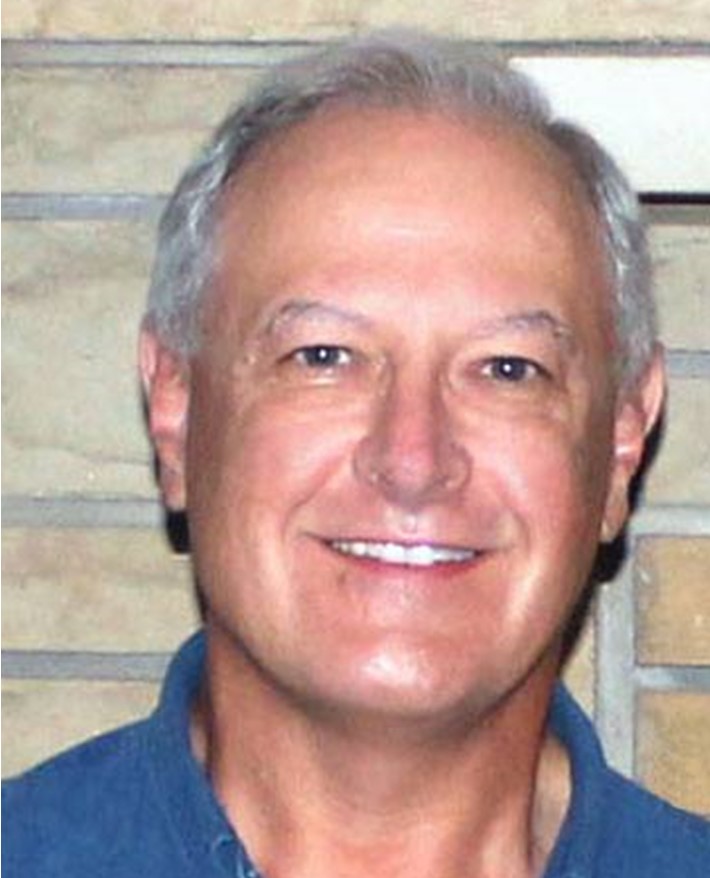
Anthony Pratscher
GOOD AT BEING BAD
by Anthony Pratscher
At my grade school, like many in this country, there was a group of kids who ‘couldn’t do anything wrong’ in the teachers’ eyes. Also, there was a group who ‘couldn’t do anything right.’ I was in the latter group, and it was frustrating. I just couldn’t ‘be good,’ no matter how hard I tried. If I got 20 things ‘right’ I would hear about the one that was ‘wrong.’ It just wasn’t meant to be. That’s when I began to notice something. Many of my friends in the group who couldn’t ‘be good’ started getting noticed for something else. They started getting good at ‘being bad.'[expand title= “…READ MORE“] They started turning into bullies, they congregated at the corner of the playground and were actually practicing their curse words (this was a Catholic grade school in the 1960’s, so that was REALLY ‘bad’). They just completely gave up at trying to ‘be good.’ In retrospect, the message was clear: “You didn’t notice me when I was trying to be good, now you’ll pay attention to me when I’m bad!”
I was on the verge of heading down the ‘Being Bad’ road when something unexpected happened. I encountered a lay teacher named Mrs. Phelps. She was unlike any other teacher I had ever encountered, including the nuns. She had a totally different approach. If it was a 20-question quiz and I got three wrong, that’s not what she wrote on the paper. She wrote, 17 right. There was one exam that I passed with a C, and she wrote, “Your penmanship is improving.” For the first time ever, I was thinking, “I’m FINALLY getting something right!” She never once told me that she was disappointed with me. She never told me that God and my parents were mad at me. I didn’t become a straight-A student, but I started on the upward curve. I no longer wanted to ‘Be Good at Being Bad’ in order to get noticed.
I don’t know whatever became of Mrs. Phelps after I graduated from grade school. But her effect on me was everlasting. And I try to pay it forward. Even at the worst of times, I’ll point out what someone is doing right.
So, parents and teachers…catch your children and students in the act of doing something ‘right’, no matter how small it may be. They will remember your words for a long time, possibly forever. And the more they get it ‘right,’ the less tempted they will be to get ‘good at being bad.'[/expand]

